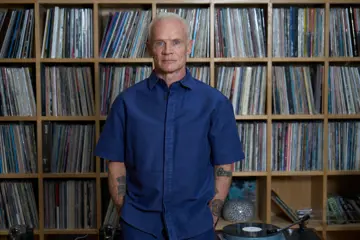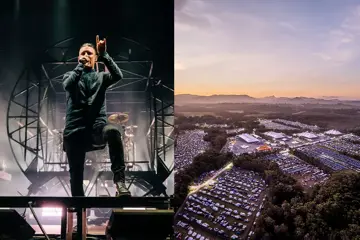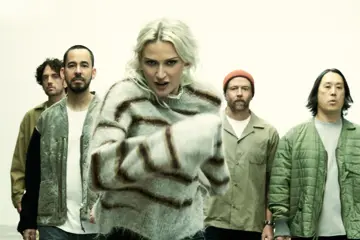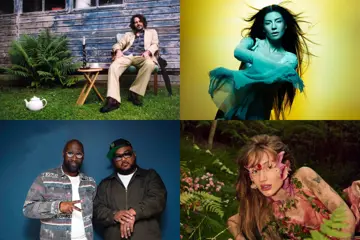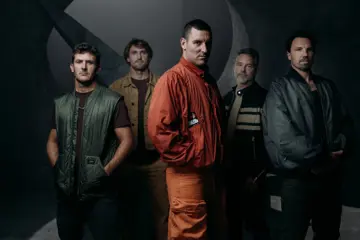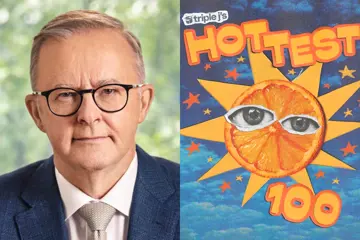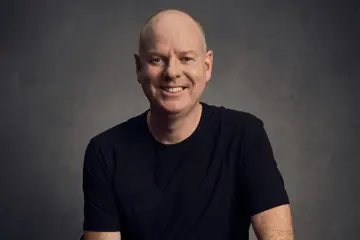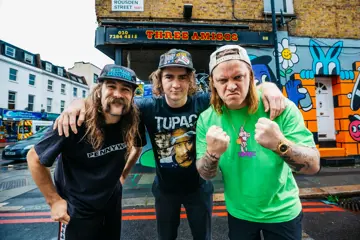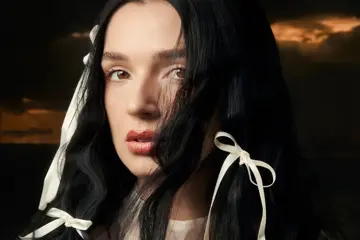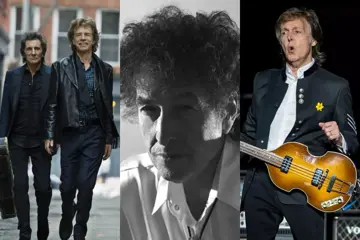Madman's semi-regular Reel Anime jamboree never resembles an actual film festival; it is, on a curatorial and cultural level, nothing more than a glorified coming-attractions promotion for a handful of soon-to-be-available Madman DVDs. But, every year, it justifies its existence by showing worthy films that'd otherwise never play on big screens locally. Past years have turned up Mamoru Hosoda's The Girl Who Leapt Through Time and Summer Wars – two of the most superior anime pictures of the past decade, and artful exemplars of the form at its best – and those screenings alone can excuse Madman shilling their wares from here to eternity.
This year's Reel Anime selection is but four films, but there's a weighty headliner: Up On Poppy Hill, the latest Studio Ghibli picture. Adapted from a shojo manga serial from the '80s by the legendary Hayao Miyazaki, and directed by his son, Goro, it's Ghibli at its least fantastical and most sentimental, similar in tone to Only Yesterday or Whisper Of The Heart. Set in Yokohama in 1963, it's a tale of adolescent romance tinged with loss, both personal and cultural. Umi, its 16-year-old heroine, is effectively functioning without parents; her father died in the war, her mother is in America. The film is fascinated by her daily routines: raising and lowering nautical flags in honour of fallen sailors, or constant preparation of meals; borrowing what are thought of as realist techniques – calmly watching her chop vegetables, or deep-fry prawns – in a dignified portrait of domestic routine. Umi feels the first stirrings of love – presented, in time-honoured Ghibli fashion, with no notes of condescension – with a class-mate Shun and, if you throw out a kids-battling-to-save-the-old-Latin-Quarter-from-a-developer storyline, then Up On Poppy Hill is a portrait of their passage into adulthood as succession of their lost parents; and, in symbolic turn, the New Japan moving on from the trauma of WW2.
Wolf Children is of a similar emotional bent, only more fantastical, it, too, concerned with the heritage of a dead father, and the children who've inherited both his blessings and curses. In this case, they're the werewolf kids being raised by a human mother, struggling with their identities, juggling desires both bestial and human as they grow up. The set-up sounds cheesy, but the film takes its premise seriously, imagining the ramifications with almost socio-realist intent. It's artfully directed, too; one passage-of-time sequence, in which the children steadily climb through grades in school, puts the animated medium to perfect use.
Children Who Chase Lost Voices is, in many ways, similar, another sentimental tale starring a headstrong girl with a dead father, though this time, our heroine finds her way into another world; a gateway to a mystical kingdom of glowering lore, interventionist deities and fantastical monsters. There's a lyrical quality to the presentation – the way soft candlelight glows is intended to show a loving quality – but, compared to the profound emotional surety of the Miyazakis, Children Who Chase Lost Voices sometimes feels a tiny bit silly.
Don't miss a beat with our FREE daily newsletter
And, if you're down for dividing anime by genders, then Berserk: The Egg Of The King is comically butch. Based on a ridiculously-popular manga – and set to be turned into an animated trilogy – the film is set in a medieval-ish fantasy world in which armoured men swing blades and ride on horses. There's derring-do, double-crosses and countless battle scenes, with an infinite array of corpses piling up in its swift 70 minutes.
WHAT: Reel Anime
WHEN & WHERE: Thursday 13 to Wednesday 26 September, Dendy Newtown

